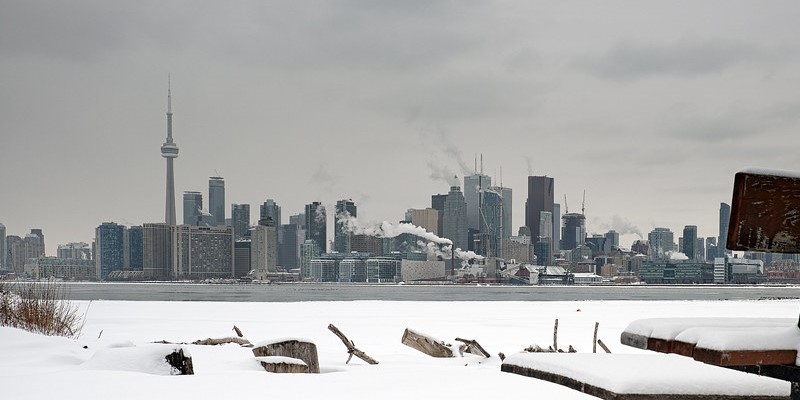Toronto should reduce spending before raising taxes on homeowners

The City of Toronto has launched its 2024 budget process, with city staff recommending a 10.5 per cent residential property tax hike including the “city-building levy.” That’s a tax hike of $374 for the average home, and if the city doesn’t get the shelter funding it’s counting on from Ottawa, the hike could be as high as 16.5 per cent or $589 per home. This is on top of a 7 per cent increase last year.
This is the first budget under Mayor Olivia Chow who may revise the figures before releasing her proposed budget on Feb. 1, which will then go to city council for approval on Feb. 14 (Councillor Jon Burnside described the looming property tax hike as a “Valentine’s Day massacre”). But rather than raise taxes on homeowners, city council should look to cut spending.
Start with construction spending. According to a report published by the Cardus think-tank, last year an estimated $1.65 billion in infrastructure construction in Toronto was subject to “closed tendering,” meaning only certain unionized companies could bid for that work. This uncompetitive process meant taxpayers overpaid for construction by an estimated $347 million.
Another big-ticket budget item is transit, which despite bringing in some revenue, is heavily subsidized by taxpayers. One proven way to reduce the burden on taxpayers, while increasing service and increasing safety (which has become a major concern for transit riders) is privatization. This model has been proven successful in Hong Kong, London, Melbourne and other cities, and this idea of turning spaces over to private management to improve service and increase safety applies not only to transit but to parks, too, as shown most famously in New York.
Next, the city should reduce recreation spending. Take golf, for example. There’s no good reason for taxpayers to subsidize golf but they do it now because city-owned golf courses lose money. “Including overhead expenses,” a city report noted in 2017, “golf operations incur a net loss on an annual basis.” A consultant report for the city in 2021 similarly found in the eight years from 2013 to 2020, the city’s golf courses experienced net losses in five of those years, before capital expenditures of $6.4 million.
City staff salaries, if not across the board, then likely almost everywhere in municipal operations, are also ripe for reductions. A study by the Canadian Federation of Independent Business (CFIB) estimated municipal government staff in Toronto were paid salaries 11.2 per cent above private-sector market rates, and 25.9 per cent higher after accounting for benefits such as pensions and working hours. The CFIB study was based on 2011 National Household Survey data, so is somewhat dated, but there’s no reason to think there has been much change in the intervening period. Indeed, a Fraser Institute study in 2023 found government (federal, provincial and municipal) workers in Ontario were compensated 10.9 per cent better than comparable private-sector workers, alongside better pensions and job security.
Construction, transit, recreation and staffing costs are just some places where the City of Toronto can and should spend materially less, but they are not the only areas. Instead of imposing a significant property tax increase of 10.5 per cent or more on its residents, city council should plan to reduce spending where there is excess.
Author:
Subscribe to the Fraser Institute
Get the latest news from the Fraser Institute on the latest research studies, news and events.

